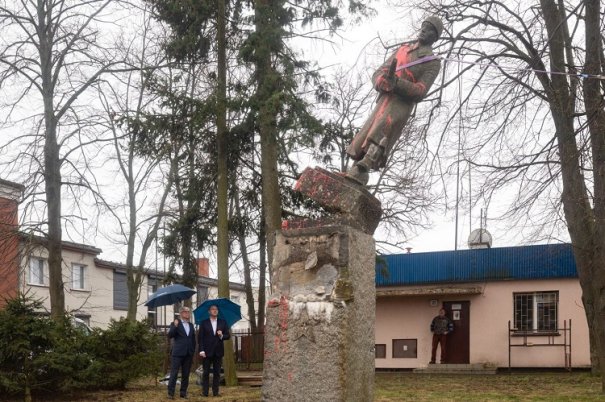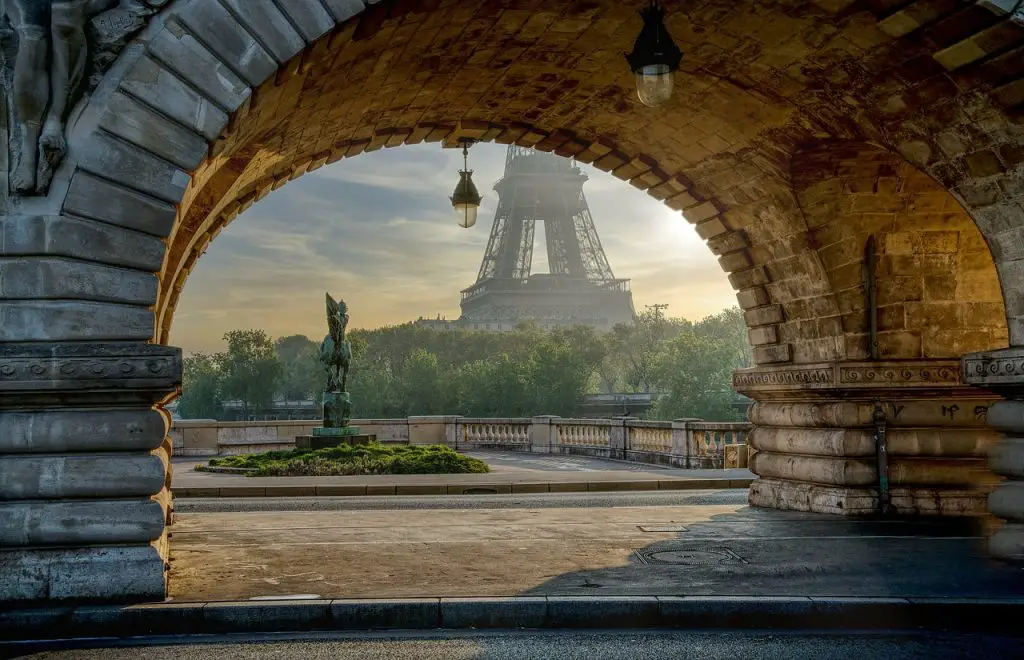 oles experienced a double occupation during the Second World War, but the Soviet-German pact that led to it is a real gap in history and in European memory. This is the main cause of today’s European problems, as revealed especially by the war in Ukraine,” statesProfessor Stéphan Courtois, co-author of the “Black Book of Communism”. These remarkable words were spoken during one of the panel discussions at the Congress of National Remembrance, organised by the Institute of National Remembrance on 13-15 April 2023 in Warsaw.
oles experienced a double occupation during the Second World War, but the Soviet-German pact that led to it is a real gap in history and in European memory. This is the main cause of today’s European problems, as revealed especially by the war in Ukraine,” statesProfessor Stéphan Courtois, co-author of the “Black Book of Communism”. These remarkable words were spoken during one of the panel discussions at the Congress of National Remembrance, organised by the Institute of National Remembrance on 13-15 April 2023 in Warsaw.
Although history has clearly shown that the liberator from German occupation turned out to be the next aggressor, and one totalitarian system was replaced by another, after more than 30 years, when the countries of Central and Eastern Europe “celebrated” the collapse of the communist system, the symbols of criminal ideology are still present in the form of monuments and commemorative plaques in honour of the Red Army and the Soviet Union, streets or squares bearing the name of the occupants.
Unawareness or simple ignorance of the undeniable facts has led to a situation where the perpetrators are still being honoured in an area soaked in the pain and suffering of entire peoples. The Russian aggression against Ukraine made it clear that the imperialist ambitions of the heirs to the former Soviet Union are by no means dormant at the dawn of the 21st century.
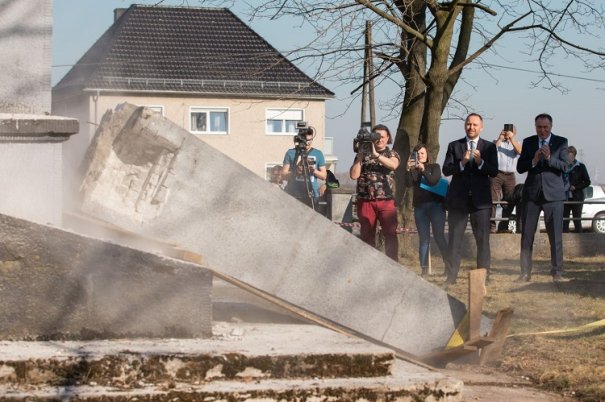
Appeal by the President of the Institute of National Remembrance
Shortly after the Russian invasion of Ukraine, in a high-profile appeal on 4 March 2022, the President of the Institute of National Remembrance, Dr Karol Nawrocki, emphasised that the bloody occupation of the territories of an independent state was being carried out in the spirit of glorifying Russian imperialist traditions and relativising the crimes of Soviet communism. As he pointed out, the Russian authorities are trying to justify their aggression by drawing on the worst patterns of communist-era propaganda and pseudo-historical arguments. “How meaningful were the pictures that spread around the world in recent days: a Russian tank with the USSR flag heading towards Kherson,” said Karol Nawrocki.
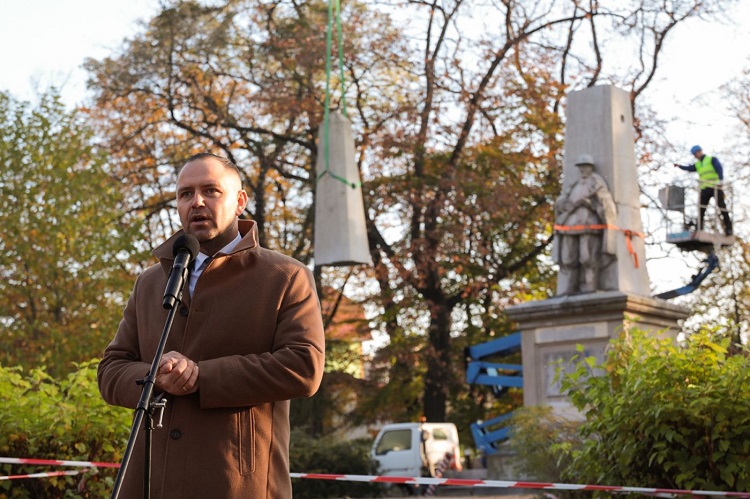
The President of the Institute of National Remembrance took this opportunity to call on local authorities to remove from public space all names and symbols still commemorating persons, organisations, events or dates symbolising communism. “It is high time to catch up in this area,” he concluded by pointing out that there is no place in Polish public space for any commemoration of the totalitarian communist regime and the people who served it.
The inglorious legacy of Soviet imperialism
Recently, as part of efforts related to the decommunization of public space, employees of the Institute of National Remembrance in Poland identified more than 60 monuments erected in gratitude for “liberation”, the Polish-Soviet brotherhood of arms or generally honouring the Red Army. Nearly 30 monuments were removed in agreement with local authorities.
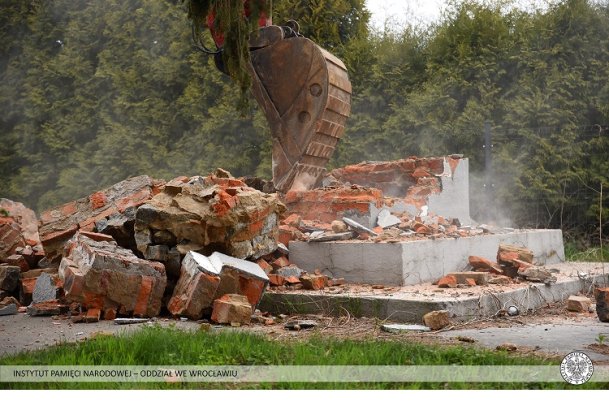
It should be emphasised that under the Act of 1 April 2016 on the Prohibition of the Propagation of Communism or Other Totalitarian Regimes Through Names of Organizational Units, Auxiliary Units of Communes, Public Utility Buildings, Sites and Facilities and Memorials, the Institute of National Remembrance has been entrusted with the function of an opinion and expert body in the legally prescribed process of changing the names and patrons of streets, squares, etc. and removing from public space monuments and other material objects symbolising totalitarian systems or containing ideological and propaganda content.
The Institute of National Remembrance has so far issued 2145 opinions under the Decommunization Act. It should be noted that as recently as 2016, as many as 2,200 streets in Poland bore the name of a Soviet occupier. This shows not only the scale of neglect, but also how important it is to reach out to the public and awaken public awareness. Research by Kantar Public, conducted at the beginning of November 2022 on behalf of the Institute of National Remembrance, confirms that the dismantling of communist propaganda objects in the public perception is the right action (49% of Poles believe so).
The decommunization activities of the Institute of National Remembrance are not uncommon and have initiated similar initiatives in other countries. After Russia’s invasion of Ukraine, many countries – especially the Baltic States – decided that the issue of dismantling so-called monuments of gratitude should be finally completed. The government in Estonia announced that as many as 400 monuments would be removed, while the Latvian government in July 2022 gave permission for the removal of 69 monuments and commemorative plaques glorifying the Red Army. Similar measures have also been taken by Lithuania, which is currently removing Soviet monuments.
Avid Writer with invaluable knowledge of Humanity!
Upcoming historian with over 30 million views online.
“You make your own life.”

